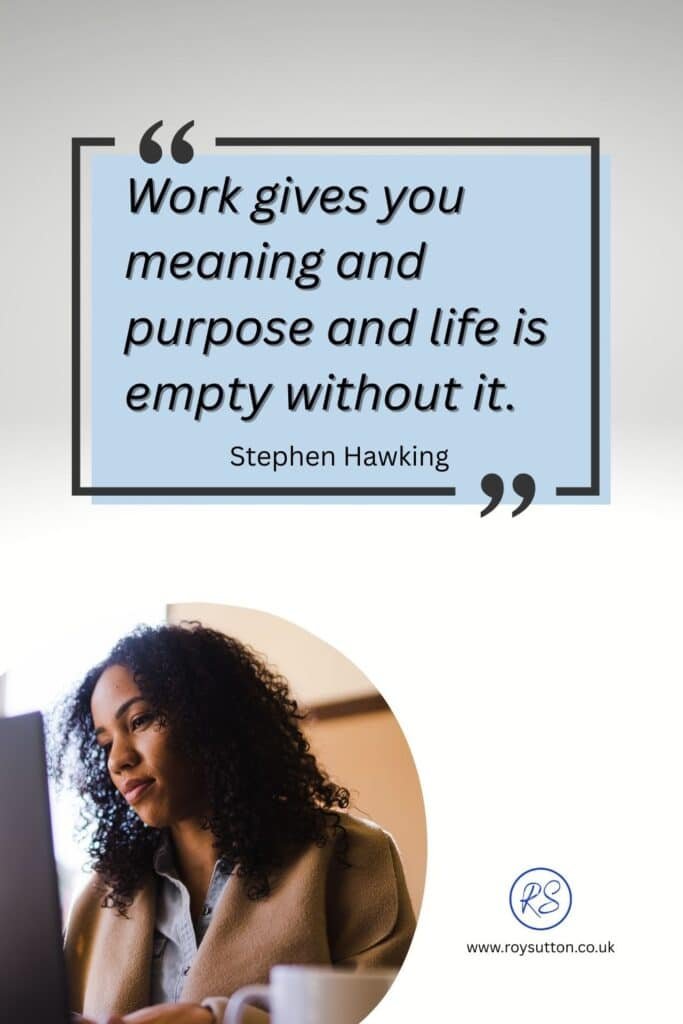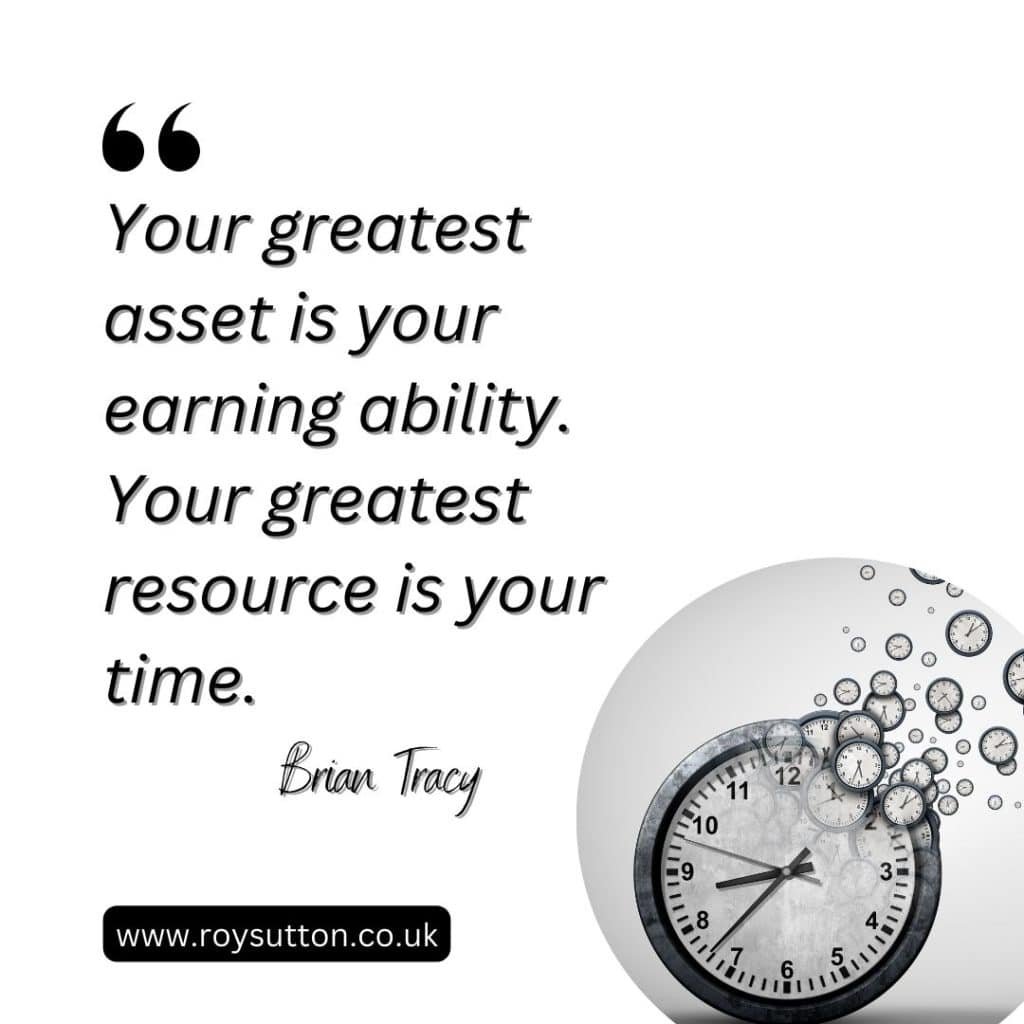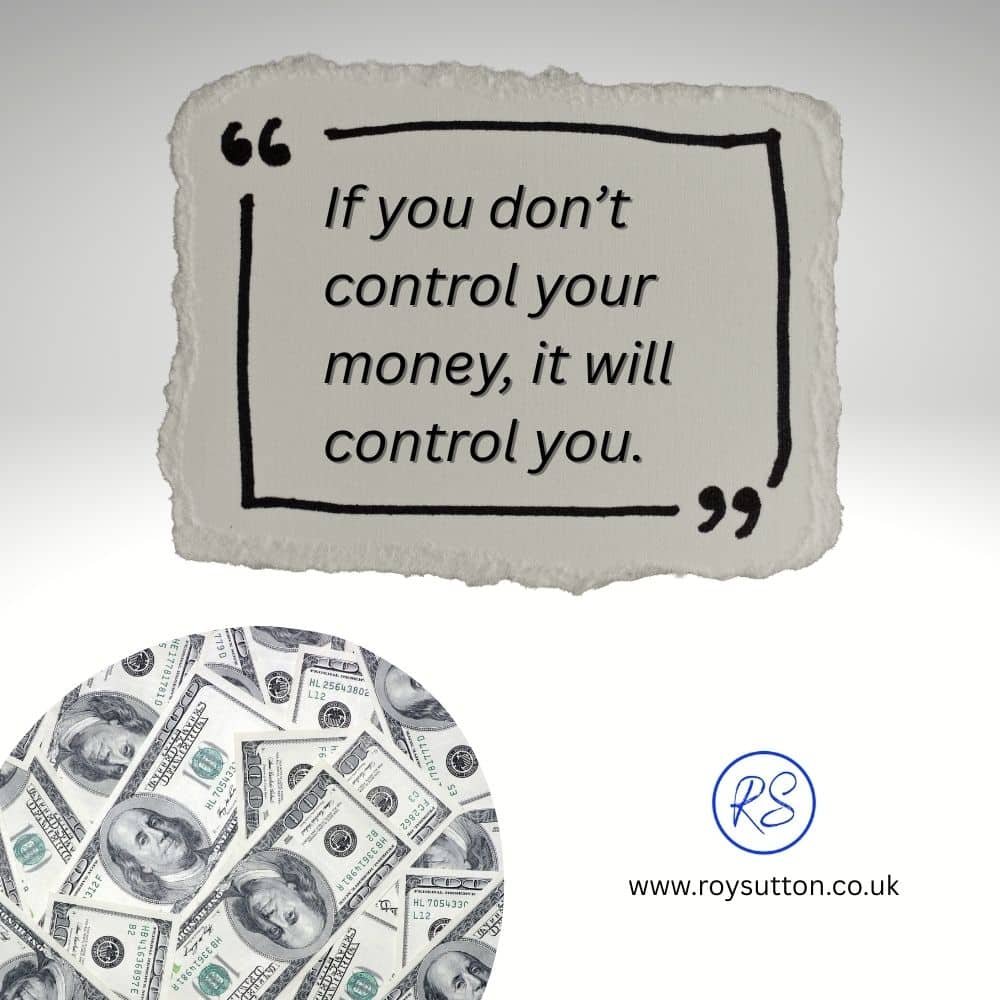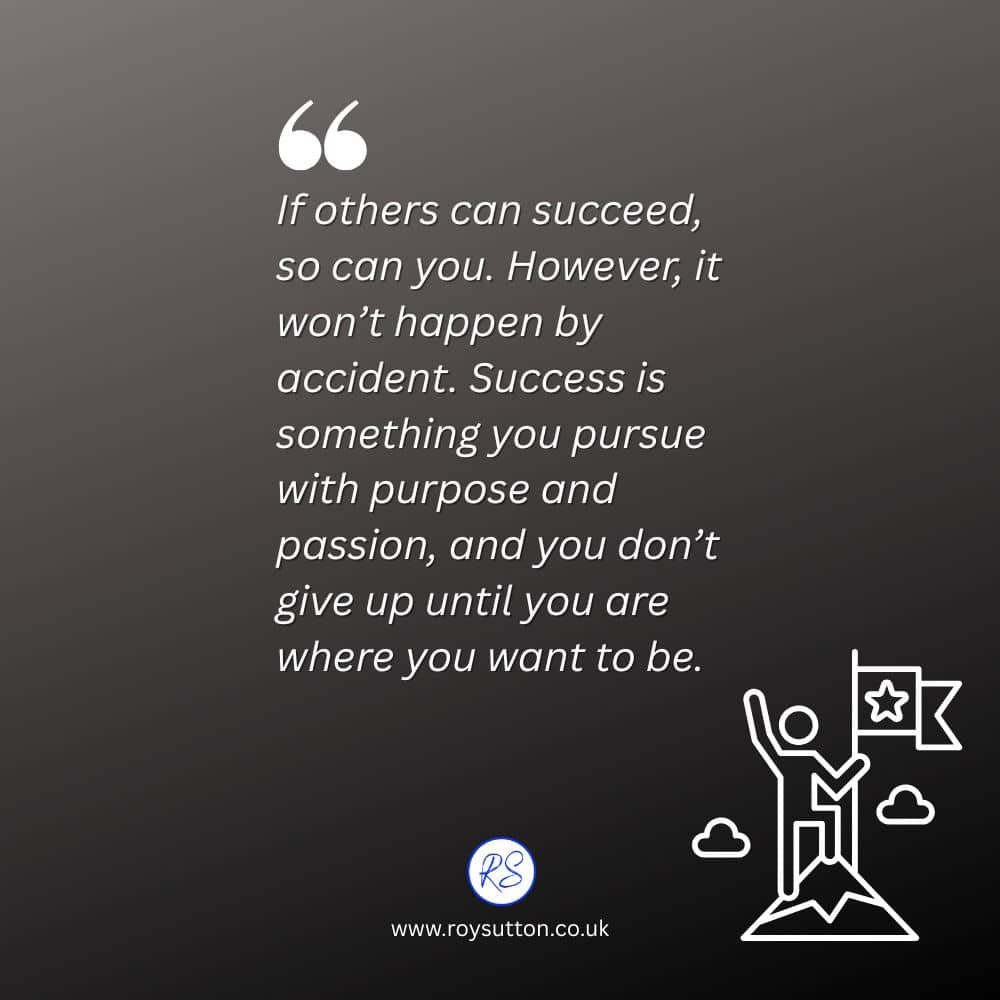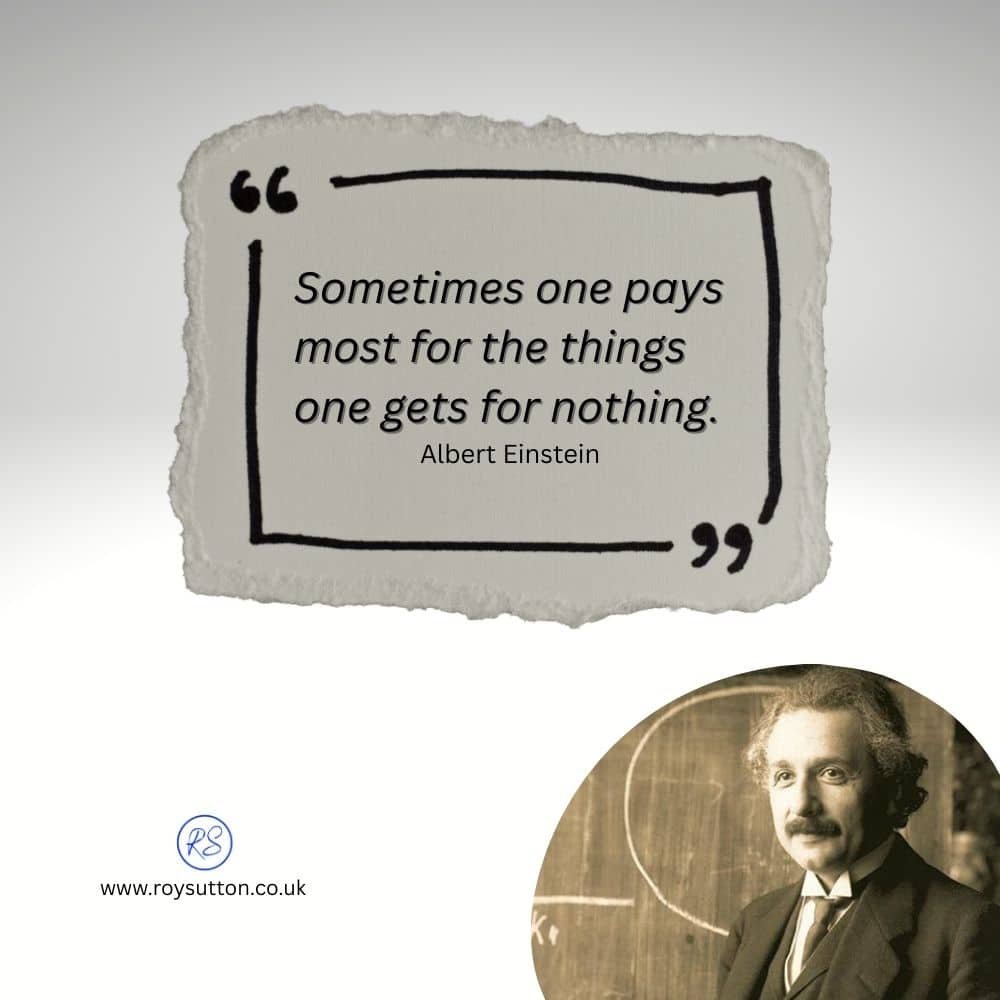
The advantages of work are many, but often people fail to appreciate the importance of their work. So my question to you today, dear reader, is, how do you regard your work?
Perhaps for you, work is just a source of income, but by no means your passion.
Maybe it’s something you must do simply because you desperately need an income, but it doesn’t leave you feeling energized and motivated to do the best job you possibly could do?
Perhaps mostly you’re just going through the motions, doing the minimum you can get away with each day and longing for the weekend and time off.
Maybe you’re the sort of person who prefers to spend your time in the office chatting and drinking coffee with your workmates.
Does any of this sound like you, dear reader, or possibly a slightly exaggerated version of you?
If that’s not you and your work is your passion, or at least you take it seriously, then this article is not really for you.
This article is for readers who feel less than energised by the work they’re currently doing and those who need a timely reminder that there are good reasons for taking work seriously.
The advantages of work:

Work is your livelihood:
If you’re not pulling your weight in your current job, then you should know that it won’t have gone unnoticed. Just because your boss has yet to say anything doesn’t mean he or she hasn’t noticed.
And if you’re building a reputation for being a slacker, then it’s only a matter of time before the company will find a reason to get rid of you, if you’re not careful.
You must appreciate that a business cannot carry costs that add little or no value to that business. That is, it can’t if its aim is to survive, at least.
Commercial reality will very quickly kick any business in the butt should its management fail to keep tight control on costs.
Companies are not registered charities.
Any costs must be covered by the prices charged. If a business bears unnecessary costs for long then the result will be pricing that is simply uncompetitive. And if the business isn’t competitive, then it will lose out to the competition.
Think about that for a second. As a consumer, if Company A is selling a product at a lower price than Company B, where will you buy it? You’ll go for the best price every time. No customer loyalty will survive even a small saving in price. To believe otherwise would be naïve.
So if you’re not adding value, then potentially you’re at risk of losing your job.
Your work is your livelihood, so losing your job could actually hurt you. In fact, the best way to appreciate your job is to imagine your life without it.
Work provides you with a sense of purpose:
The very essence of what work is all about is simple. Work is just doing stuff for other people in return for money. It gives us an income, but it also gives us a sense of purpose.
Through work, we apply our skills and know-how to deliver an output or an outcome for someone else. That may be an individual or an organisation, but either way, we are paid for what we actually deliver.
Essentially, that’s the psychological contract we enter into when we agree to do work for someone else.
If we’re not delivering what we’re paid to deliver, then we’re not doing our job properly. We are not fulfilling the psychological contract that is work.
Taking pride in our work is important, too. Our sense of purpose should drive us to do the best we can with the skills we have, and we should be constantly seeking to improve.
If we don’t love what we do at any given time, then we should be looking for ways to change our mindset to take a more positive view.
If we view our work positively, then we’re more likely to be energised by it, and if we’re energised by it then we’re more likely to do it well.
Work is how we make a difference:
You must also recognise that there’s a big difference between being busy and delivering real results. Never confuse industry with effectiveness. The two are very different things.
If I’m paying you to paint houses, then the only measure I will use to judge you on is how well and how efficiently you paint houses. I don’t really care how helpful you might have been to the electrician or the refuse collector.
Being busy doesn’t count for anything unless you’re busy doing the right things. Doing the right things is how we make a real difference. And surely we’d all like to make a difference?
Other benefits:
Having a job actually provides us with many benefits.
For a start, the income it generates allows us to put a roof over our heads and food on our table.
Managed carefully, the money we earn will put clothes on our backs and allow us to heat our homes.
And of course, it provides so much more, too.
Having a job gives us status, and our own income gives us a degree of independence and freedom.
All these things together improve our self-esteem.
And of course, work gives us a reason to get you out of bed each day.
Work is how we contribute to the society around us. Not just in what we actually do, but also in the taxes we pay. That’s how we pull our weight and justify membership in the society in which we live.
However, let us not forget the camaraderie we enjoy with work colleagues. People are social animals, and we need the company of others.
Yes, some of them will drive us nuts at times, but mostly they’re good people just like us, with lives just like ours and with whom we can relate.
We share their laughs, and we share their tears, too, at times; the good times and the bad times; it all makes life worth living.
Work allows us to engage with other people, and that’s very important.
Your work can be your legacy too:
Work is what we do for other people, and what we’ve done for other people is how we’ll be remembered long after we’re gone. So potentially your work is your legacy.
On that basis, whatever you do, strive to do it well.
It might not seem much to you, but it will matter to other people.
Have a sense of pride in your work, whatever it is. It doesn’t matter whether you sweep roads or you’re a skilled heart surgeon; we all have our place in society, and we all have our contribution to make.
And whatever role you play, no one is better than anyone else.
Enjoy your work or keep looking:
It’s important you find a way to enjoy your work because you spend a third of each day doing it.
Sometimes it’s just a case of looking at your work differently in order to appreciate what you have. However, sometimes, even then, for whatever reason, you’ll feel unhappy.
If you can’t find a way to enjoy your work, then find another job. One more suited to your natural talent, perhaps. However, until you find the right thing, you must grit your teeth and do your current work to the best of your ability.
And never, ever just walk away from a job without having another one to go to.
It is ironic, perhaps, but it’s always much easier to find another job when you already have one.
Without a job, a potential employer might wonder whether you’re unlucky or just a loser. And usually, employers will be reluctant to take a chance on you if they’re unsure.
Conclusion:
The importance of work to our lives and our self-esteem should not be underestimated. So do the work you’re paid to do and do it well. Do that, and success can be yours.
Don’t do your job properly, and you’ll struggle to hold on to it for very long. Lose it, and almost certainly you’ll regret it.
That’s the nature of work, it always has been, and it always will be.

Please share this post with your friends:
Did you find this article interesting and useful, dear reader?
If so, then please share it on social media with your friends. When you share, everyone wins.
So go on, please share it now. If you do, I’ll be ever so grateful, and you’ll be helping a keen blogger reach a wider audience.
Thank you for your support, dear reader.
Articles you might find interesting:
- How to build confidence and self-esteem
- 9 essential life skills and how to master them all
- 6 top job interview questions to help you prepare
- Why is my life so bad right now?
- 11 tips for improving quality of life now
- 15 Things Poor People Do That The Rich Don’t
- What is grit and why is it important?
- How will your life be measured? Here’s what matters most
- 11 wise sayings about life lessons and what they mean
- 10 very useful tips to be successful in life
- The importance of making mistakes to achieving success
- The importance of friends to our lives
- Why you should let your child fail and make mistakes
- Why your personal philosophy for life really matters
- 25 facts of life that might get you thinking
- 8 Top Business Tips for Success Today
- 10 tips for improving self-esteem
- Why passion is the key to success
- How to handle criticism at work effectively
- 3 ways for getting rich
- 5 ways to kill your dreams
- 33 life lessons learned that are best learned early
© Mann Island Media Limited 2026. All Rights Reserved.

